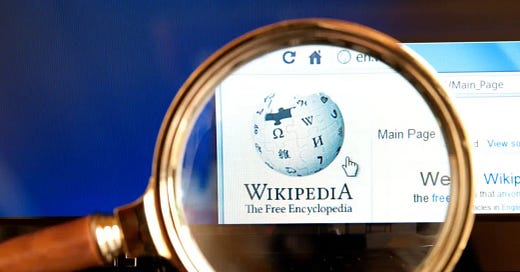Why is Wikipedia biased?
Wikipedia has long been considered a go-to resource for quick information on almost any topic, and with millions of articles covering nearly every corner of human knowledge, it’s no wonder why. But despite its status as a “free encyclopedia that anyone can edit,” claims of bias and selective moderation have become prominent. Critics argue that Wikipedia is not as neutral or objective as it purports to be, with allegations of political leanings and an organized bias against certain groups, ideologies, and historical perspectives.
Let’s dive into some examples and recurring trends that seem to indicate a systematic tilt in how Wikipedia handles its content, including alleged bias against Indian contributions, contrasting depictions of news media, and polarized narratives surrounding cultural pride.
India and the Calculus Controversy
One significant example of alleged bias involves contributions about India’s early developments in calculus, a mathematical field traditionally credited to European scientists. Despite verified historical sources that suggest India had significant contributions to calculus centuries before the work of European mathematicians, attempts to include this information on Wikipedia have reportedly been repeatedly deleted and reverted.
Users trying to introduce this content have been met with rejections from Wikipedia editors who claim their edits do not meet Wikipedia’s standards, citing various administrative reasons or questioning the credibility of sources, even when these sources include notable institutions in Europe and the UK.
Key Issues Raised:
Selective Reversion of Edits: Edits that counter the prevailing narrative on some topics are allegedly reverted almost systematically, creating a pattern of censorship.
IP Blocking and Ban Threats: Editors who persistently try to correct or add verified information have reported facing IP blocks and bans, leading to a lack of diverse perspectives in articles.
Potential Agenda of Editors: Editors in charge of these pages are influenced by colonial-era biases or nationalist sympathies, which affect their willingness to allow positive or accurate historical contributions related to India.
News Media Bias: The Fox News and MSNBC Comparison
Wikipedia’s depiction of media channels like Fox News and MSNBC reveals another alleged instance of bias, where the former is openly described as a “conservative news channel” while the latter is not similarly labeled as a “liberal news channel.” Instead, MSNBC is described as providing “news coverage as well as its own reporting and political commentary.” This selective phrasing suggests a reluctance to label left-leaning organizations while emphasizing the political stance of right-leaning organizations.
Why This Matters:
Different Treatment for Similar Organizations: The discrepancy in descriptions for Fox News and MSNBC implies a bias that could influence readers' perceptions, especially if they are unfamiliar with these organizations.
The Influence of Subtle Wording: Seemingly small editorial choices can cumulatively affect the reader’s perspective on whether these media outlets are trustworthy, neutral, or politically driven.
Cultural Pride and Ideology Bias
Another glaring inconsistency critics have noted is Wikipedia’s contrasting portrayal of "Black pride" and "White pride." According to these critics, Wikipedia’s description of “Black pride” frames it as a positive, empowerment-based movement, while “White pride” is portrayed almost exclusively in terms of white supremacist organizations. Although the broader social context might justify these distinctions to some, critics argue that Wikipedia’s wording lacks nuance and implies a strong ideological slant.
Important Takeaways:
One-Sided Narrative: While Black pride is linked to cultural celebration, White pride is immediately tied to extremist groups, lacking acknowledgment of other potential interpretations.
Potential for Confirmation Bias: Wikipedia's approach could reinforce confirmation bias among readers by downplaying any alternative viewpoints that exist within broader cultural movements.
The Administrative Angle: Moderation and Bias Enforcement
Wikipedia’s editors and administrators skew toward specific ideological leanings, resulting in selective enforcement of guidelines. This is evidently clear that certain administrators frequently collaborate to block or revert edits that don’t align with their views, resulting in an echo chamber that reinforces particular narratives.
Wikipedia’s affiliations and funding have also been called into question; one of its significant donors, the Open Society Foundations, is funded by George Soros, a philanthropist known for his liberal viewpoints and vocal criticism of Indian policies, further fueling suspicion about Wikipedia’s ideological leanings.
Conclusion
These examples and critical observations highlight the importance of viewing its content critically. As users, awareness of potential biases can help us consume information more discerningly. In a digital era where knowledge shapes opinions, it’s crucial to engage with resources that strive for objectivity, recognize potential limitations, and support a balanced view of history, culture, and current events.



